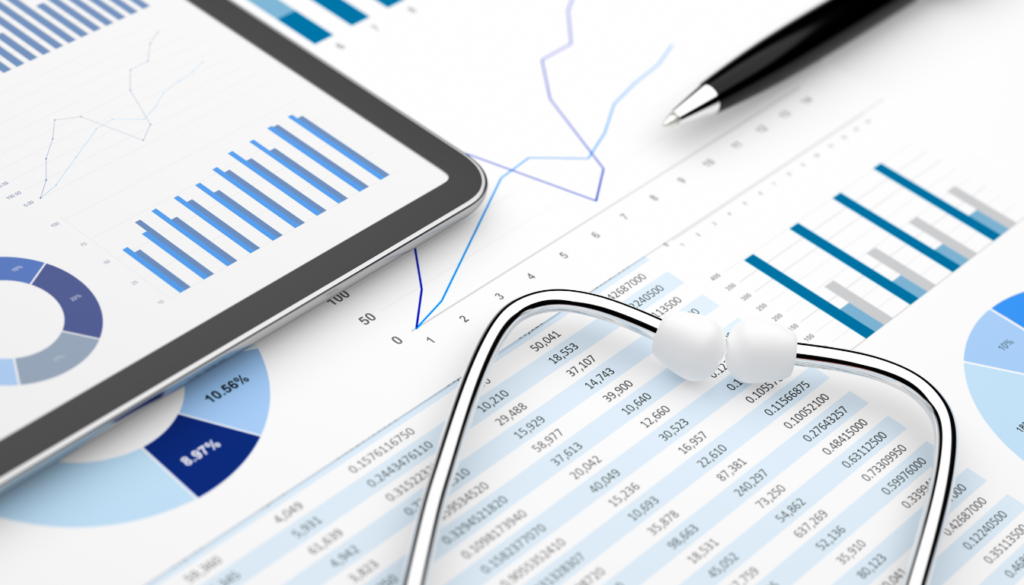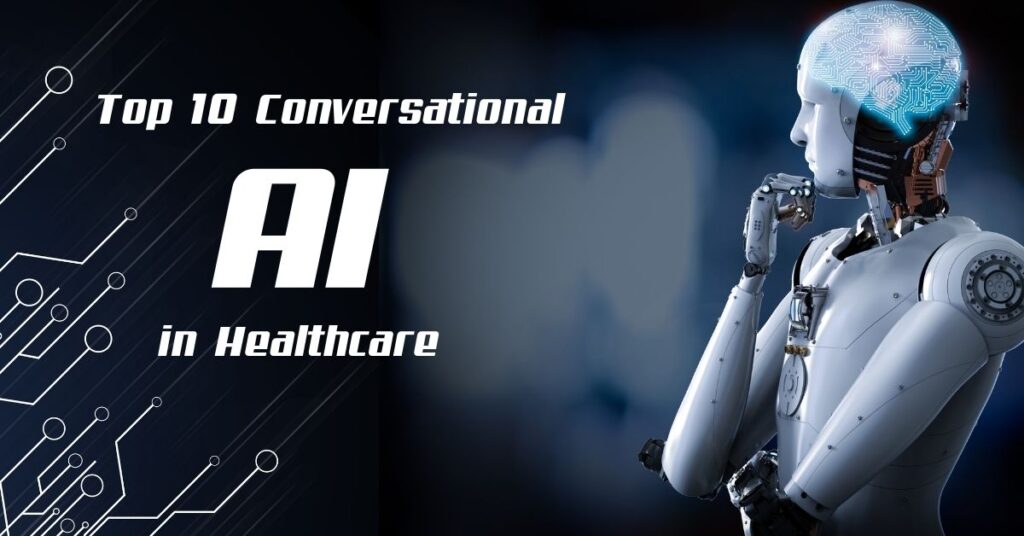
Healthcare organizations are recognizing the pivotal role of data analytics in improving patient care and optimizing clinical decisions. With the integration of advanced technology, such as artificial intelligence (AI) and big data analytics, healthcare providers can streamline processes, enhance customer experience, and drive better outcomes.
Healthcare data analytics with AI enables the analysis of vast amounts of data, identifying patterns and trends to provide valuable insights that drive data-informed decisions. These decisions lead to improved operational efficiency, reduced compliance risks, personalized patient engagement, and enhanced revenue cycle management.
AI is revolutionizing the healthcare industry by redefining data analytics, empowering healthcare providers to deliver better care. Discover how AI is transforming compliance accuracy, customer experience, optimizing patient services, tracking vitals, and efficient hospital management.
The Role of AI in Compliance and Customer Experience
In the healthcare industry, compliance with regulations is crucial but often complex and time-consuming. AI can play a significant role in improving healthcare compliance accuracy by analyzing millions of interactions, identifying issues, and notifying compliance staff about any inconsistencies or omissions.
AI-powered analytics can also enhance customer experience within the healthcare industry. By leveraging AI in healthcare, real-time interactions can be enabled, providing actionable feedback based on patient emotions and sentiments. This results in a seamless end-to-end consumer journey, including faster self-service options, efficient live interactions, and personalized attention that improves patient satisfaction and builds trust.
Implementing AI-powered healthcare compliance and customer experience solutions can streamline processes, optimize operational efficiency, and improve patient outcomes. With the help of AI, healthcare organizations can better manage compliance risks, reduce errors, and ensure regulatory adherence. Simultaneously, they can provide personalized care and services, enhancing the overall customer experience. Through predictive analytics in healthcare, AI can uncover valuable insights from large amounts of data, enabling healthcare providers to make data-driven decisions that improve patient care and optimize operations.
Healthcare Data Analytics with AI: AI-Powered Speech Analytics

AI-powered speech analytics is a valuable tool for healthcare providers to optimize patient services. Using advanced technology, such as AI-powered algorithms, healthcare organizations can analyze patient conversations and feedback to gain valuable insights into their needs, preferences, and pain points.
By understanding patient sentiment and emotion through speech analytics, healthcare providers can personalize patient engagement and enhance the overall patient experience. This personalized approach fosters stronger patient-provider relationships and improves patient satisfaction.
Speech analytics also plays a crucial role in monitoring health outcomes and mitigating compliance risks. By analyzing patient conversations, healthcare organizations can ensure adherence to regulations and identify any areas that require improvement. Additionally, speech analytics can contribute to optimizing operational efficiency by analyzing staff conversations and call volume patterns.
Insurance interactions are another important aspect of patient services that can be enhanced through speech analytics. By analyzing patient conversations related to insurance, healthcare providers can identify opportunities for improvement in revenue cycle management.
Related Post: The Top 10 Conversational AI for Healthcare in 2024
Harnessing AI for Tracking Vitals and Efficient Hospital Management
AI technology offers immense potential for tracking patient vitals and optimizing hospital management. Through the use of predictive data analysis, healthcare providers can monitor essential lab data in real-time, including pulse rate, breathing pattern, and blood pressure. By attaching AI devices to ICU beds, healthcare professionals can receive valuable insights, enabling them to respond swiftly to emergencies and provide timely interventions.
One of the key advantages of AI in hospital management is the automation of various tasks that can streamline operations and enhance efficiency. For instance, AI can automate patient registration, categorize emergencies, and expedite the patient discharge process. By reducing administrative burden and minimizing manual errors, AI helps improve the overall efficiency of hospitals, enabling healthcare providers to focus on delivering quality patient care.
By harnessing the power of predictive data analysis and AI technology, hospitals can optimize patient outcomes and healthcare delivery. Real-time tracking of vitals and automated management processes result in more accurate and timely interventions, reducing the risk of adverse events and improving patient safety. Additionally, AI-powered hospital management systems enable healthcare professionals to make data-driven decisions, enhancing resource allocation, and improving overall operational efficiency.
In conclusion, AI is revolutionizing healthcare by transforming the way patient vitals are tracked and hospital operations are managed. The integration of predictive data analysis and AI technology enables healthcare providers to deliver efficient, personalized, and highly effective care to patients. By leveraging AI for tracking vitals and optimizing hospital management, healthcare organizations are poised to revolutionize the healthcare landscape and improve patient outcomes.
Conclusion
AI is revolutionizing healthcare data analytics, shaping the future of healthcare. By harnessing Healthcare data analytics with AI, healthcare providers can unlock a world of opportunities to improve patient care, enhance customer experience, optimize operational efficiency, and make data-driven decisions.
The integration of AI in healthcare brings numerous benefits, including the ability to track vitals in real-time, streamline hospital management processes for better resource utilization, and decode complex lab results for accurate diagnoses. AI also plays a pivotal role in improving medical records management, ensuring secure and seamless access to patient information.
Furthermore, AI enables healthcare organizations to automate customer relationship management, providing personalized interactions and efficient service delivery. These advancements empower healthcare providers to deliver personalized and efficient care, leading to better outcomes and improved patient satisfaction.
The future of healthcare depends on embracing AI technology to elevate data analytics, creating a positive and transformative impact on the industry. With AI as a powerful tool, healthcare organizations can unlock new insights, drive innovation, and improve healthcare delivery for the benefit of patients worldwide.
FAQ
What is the role of AI in healthcare data analytics?
AI plays a crucial role in healthcare data analytics by leveraging advanced technology to analyze vast amounts of data, identifying patterns and trends, and providing valuable insights that help healthcare organizations make data-driven decisions.
How can AI improve compliance accuracy in healthcare?
AI can improve compliance accuracy by analyzing millions of interactions, identifying issues, and notifying compliance staff about any inconsistencies or omissions, thereby reducing compliance risks.
How does AI enhance customer experience in healthcare?
AI enhances customer experience by enabling real-time interactions, providing actionable feedback based on patient emotions and sentiments, and delivering a seamless end-to-end consumer journey, which includes faster self-service options, efficient live interactions, and personalized attention.
How can AI-powered speech analytics optimize patient services?
AI-powered speech analytics can analyze patient conversations and feedback to gain insights into their needs, preferences, and pain points, allowing healthcare providers to personalize patient engagement, enhance the patient experience, and foster stronger patient-provider relationships.
How does AI contribute to tracking vitals and efficient hospital management?
AI contributes to tracking vitals and efficient hospital management by using predictive data analysis to enable real-time monitoring of important lab data, automate tasks such as patient registration and discharge, and provide valuable insights to healthcare providers in order to respond quickly to emergencies.
How is AI revolutionizing healthcare data analytics?
AI is revolutionizing healthcare data analytics by leveraging advanced technology to improve patient care, enhance customer experience, optimize operational efficiency, and enable data-driven decision-making. This integration of AI technology is transforming the future of healthcare.

